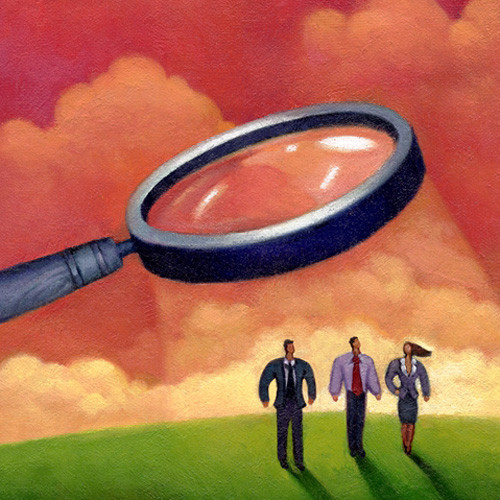Carly is a talented young professional in her first executive director role at a social change organization. Rico recently switched from corporate finance to a nonprofit focused on global economic issues. David runs an organization he founded after college that engages tens of thousands of people globally.
For foundations like ours—the Charles and Lynn Schusterman Family Foundation—that are committed to developing purpose-driven leaders with the motivation and capacity to create systemic social change, Carly, Rico, and David are all poised to deliver big returns on investment. Yet they each possess a unique background and skills that require nurturing to maximize their potential.

Their stories reflect broader trends, including the desire to align work with personal values and a tendency to change jobs every few years—40 percent of the time to entirely new sectors. A job used to be your career for life, and a formal education would prepare you for that career. Neither is true today.
This context is challenging to those of us focused on improving the skills and deepening the impact of up-and-coming leaders. The traditional program that trains everyone on the same set of competencies will not meet the needs of rising stars, does not reflect their professional trajectories, and does not help organizations better achieve their missions.
In today’s marketplace, we believe a “one-size-fits-all” approach to leadership development does not cut it. Instead, we provide leaders with access to a suite of diverse experiences, and enable individuals to select the opportunities that best meet their interests and professional needs.
Our model, in this regard, is akin to Spotify: We offer a catalogue of opportunities, and each individual builds a personal playlist. Our catalogue remains open and accessible for the long-term, even as individuals change jobs, locations, and sectors.
Some examples:
- Peer-led gatherings. Schusterman provides training and funding directly to individuals to create their own thematic-based experiences that engage peers with issues facing their communities. These gatherings help leaders develop the hard skills required to build impact-oriented networks.
- Immersive trainings. Schusterman gatherings replace top-down, frontal conferences with platforms that allow for peer-coaching, open discussion space, personal reflection, identity development, and multiple ways to build strategic networks.
- Micro-grants. Past participants in select Schusterman initiatives have access to micro-grants, which they can use to participate in trainings, speak at conferences, and other activities that help them gain the skills and connections necessary to take an active role in their communities.
- Schusterman Fellowship. This new executive leadership training program features custom-built professional development experiences. Although participants are part of one cohort, they undergo experiences tailored to their specific needs.
This customized approach to leadership development is central to our foundation’s efforts to build a multi-faceted pipeline of talent, particularly in the Jewish community. Together with our organizational partners, we are jumpstarting a virtuous cycle in which great leaders shape great organizations that, in turn, attract continually stronger talent. In doing so, we believe these leaders will forge a strong ecosystem that is central to one of Schusterman’s core goals: to grow the number of people actively engaging in Jewish life and drawing on Jewish values to create a positive impact on the broader world.
Moreover, we believe this approach is broadly applicable to leadership development work across diverse fields and sectors. It responds to a universal need for capable leaders prepared to succeed. And while elements of it are more time- and resource-intensive, we believe the long-term payoff is worth the additional upfront investment.
Over the past decade, as we developed this approach, we gathered hard data and heard countless stories of the impact these experiences have had on leaders and their ability to spur change. For example, Rico, mentioned earlier, made the move from corporate finance to the social change sector after participating in an immersive training in Israel that challenged him to integrate his values with his professional endeavors.
Additionally, we are developing a tool to measure the progress of individuals’ leadership journeys. Through ongoing self-reporting mechanisms, we will be able to track metrics such as the reach and strength of individuals’ networks, and how clearly they associate their values with their work. This effort is part of a larger strategy to evaluate our impact, measure the efficacy of specific strategies, and better conduct targeted recruitment that responds to individual and communal needs.
The Talmud—an ancient, sacred book of Jewish laws and commentary—teaches that, “As the generation, so the leader; as the leader, so the generation.” Throughout history there has always been a need for great leaders. But the types of leaders we need—and the investment required to enable them to succeed—is constantly changing.
It is up to us as funders to ensure that the next generation of leaders has access to a playlist of unique and targeted opportunities that will help them innovate, collaborate, and ultimately shape the future we imagine.
Support SSIR’s coverage of cross-sector solutions to global challenges.
Help us further the reach of innovative ideas. Donate today.
Read more stories by Adam Simon.

